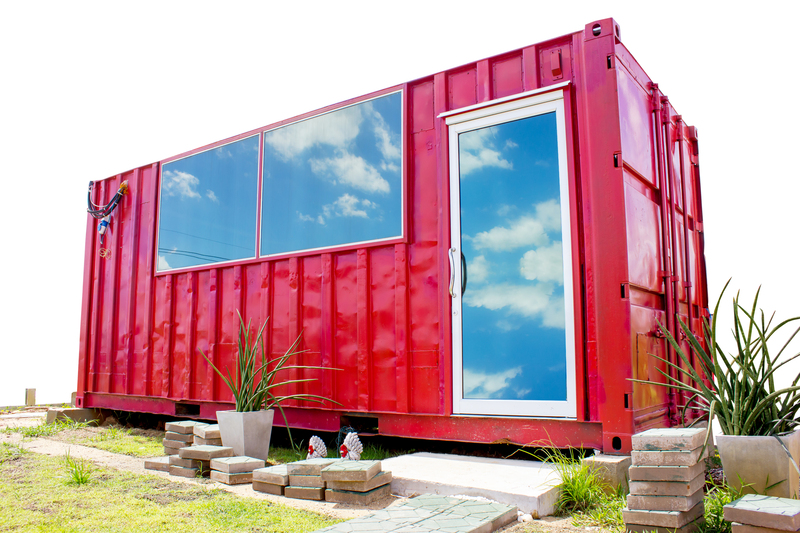Why Recycling Your Pots and Pans Matters for the Planet
Recycling isn't just about paper, plastic, and glass. Our kitchens hide countless recyclable items--among them, the humble pots and pans. Disposing of cookware thoughtfully is more important than most consumers realize. Let's explore why recycling your pots and pans is essential for the planet, the impact of kitchenware recycling, and how you can contribute to a greener future simply by handling old cookware responsibly.

Understanding the Environmental Impact of Pots and Pans
Modern cookware, including pots and pans, is designed to last. Most are constructed from robust materials like aluminum, stainless steel, copper, and even cast iron. But what happens when these items outlive their usefulness in your kitchen? Unfortunately, millions of worn-out pans and pot sets end up in landfills every year. Here's why that's a problem:
- Non-biodegradability: Most metals and non-stick coatings won't break down for hundreds of years, leading to persistent landfill waste.
- Resource Intensive Production: The creation of cookware consumes significant amounts of raw materials and energy, stressing both ecosystems and climate.
- Contained Toxins: Some pots and pans contain Teflon or other chemicals, which can leach into the soil if improperly disposed of.
Hence, recycling your unwanted pots and pans is a vital eco-friendly alternative to simply tossing them away.
How Does Pots and Pans Recycling Benefit the Environment?
1. Conservation of Natural Resources
Almost all metals used in cookware, including aluminum, copper, and steel, can be recycled numerous times without a decline in quality. By recycling, we reduce dependence on mining and extraction, which can be incredibly destructive to natural habitats.
- The recycling of metals uses much less energy compared to manufacturing from virgin ores.
- Energy savings from recycling aluminum, for example, reach up to 95% compared with new aluminum production.
- Recycled steel saves about 60% of the energy compared to new steel.
2. Reduction of Harmful Emissions and Climate Impact
The mining, refining, and transport of metal ores for cookware release vast amounts of carbon dioxide. By embracing pots and pans recycling, we can cut these greenhouse gas emissions significantly.
- Every ton of recycled aluminum prevents nearly 9 tons of CO? emissions.
- Steel recycling slashes emissions and curbs air pollution from mining and smelting activities.
3. Limiting Landfill Overflow
Landfills are overflowing with objects that could have been recycled. Recycling cookware ensures that metal does not take up valuable landfill space, which is a finite and increasingly expensive resource.
- Increasing recycling rates of household metals directly reduces landfill volume and associated environmental hazards.
- Fewer items in landfills mean less toxic leaching into the soil and groundwater.
What Happens If You Don't Recycle Cookware?
Discarding old pots and pans improperly has several negative consequences:
- The metals and chemicals they contain can contaminate the soil and nearby waterways.
- The energy and resources invested in producing your pots and pans go to waste.
- Landfills get even more crowded, hastening the need for more landfill sites and increased pollution.
How Can You Recycle Pots and Pans Responsibly?
Not all recycling facilities accept cookware due to design complexity and mixed materials. Yet, there are effective and ethical ways to ensure your used or damaged pots and pans are recycled.
1. Check with Your Local Recycling Center
Local councils or municipal recycling centers may have metal recycling facilities that accept cookware.
- Confirm if non-stick or coated items are allowed, or if only bare metal pans are taken.
- Remove non-metal handles, lids, or silicone parts where possible.
2. Scrap Metal Yards
Most scrap metal dealers accept old metal pots and pans. Some may even offer cash, except for items with non-metal components or hazardous coatings.
- Scrap yards will melt down metal cookware and add it into the metal recycling stream, significantly preserving resources.
3. Cookware Take-Back Programs
Some kitchenware brands offer take-back programs that accept worn cookware for recycling.
- Retailers may collect your old pans when you purchase new ones.
- Manufacturers often ensure responsible recycling through specialized partners.
4. Upcycling and Charitable Donations
If your pots and pans are still usable, consider donating them to thrift stores, shelters, or community kitchens. Upcycling is another creative way; old pans can serve as planters, art canvases, or tool organizers.
- Giving cookware a second life diverts them from landfills and helps those in need.
5. Curbside Recycling Programs (If Available)
Some municipalities include small metals in their recycling bins. It's critical to:
- Read local guidelines--coated pans are often not accepted in regular bins.
Types of Pots and Pans Suitably Recycled
- Aluminum pans: Lightweight and highly recyclable.
- Stainless steel cookware: Durable, rust-free, and one of the most welcomed metals at recycling centers.
- Copper-bottomed pans: Valuable metal, though often combined with other metals that may need separation.
- Cast iron pots and skillets: Exceptionally robust and fully recyclable.
- Plain metal bakeware: Easy to recycle, provided it's not lined with non-metal layers.
*Note that cookware with Teflon or other coatings may need special handling--ask your local depot for best practices.*
The Future of Sustainable Kitchenware
Industry is quickly waking up to the eco-priorities surrounding recycling kitchenware. Brands are experimenting with sustainable materials, modular designs for easier disassembly, and encouraging longer product life cycles. Some noteworthy trends include:
- Eco-friendly cookware materials like 100% recycled aluminum or natural ceramic coatings.
- Increased retail support for take-back and repair schemes, minimizing waste.
- Product design changes to facilitate future recycling--fewer mixed materials, and more reusable components.
Tips for Choosing Recyclable Cookware from the Start
When selecting new pots and pans, look for options that support end-of-life recycling:
- Choose bare metals: Stainless steel, cast iron, copper, and aluminum are typically the most recyclable.
- Avoid excessive coatings: Non-stick coatings complicate recycling; some modern pans use eco-friendly alternatives that are easier to process.
- Seek modular components: Handles and lids that detach easily simplify recycling later.
- Buy from brands with recycling initiatives or eco-labels.

FAQs About Recycling Cookware
Can I recycle non-stick pans?
Non-stick pans, especially those with Teflon coatings, need special recycling. Many centers won't accept them in curbside bins, but scrap metal yards often will, after you remove handles and lids. Retailer take-back programs sometimes process non-stick items responsibly.
Is it safe to recycle damaged or rusted cookware?
Yes--metal degrades very little when rusted or scratched. Damaged cookware is still highly recyclable; just ensure you separate or remove any non-metal parts.
Where can I recycle my old pots and pans near me?
Contact your local recycling coordinator, check municipality guidelines, and search for "scrap metal recycling" or "household metal recycling" in your city.
What if my pans are in good condition?
Donating functional cookware is often better than recycling--it extends the item's usable life and helps members of your community.
Conclusion: Small Actions, Big Impact
The simple act of recycling your old pots and pans protects the environment in powerful ways. Through resource conservation, pollution prevention, and landfill reduction, we move closer to a circular economy where waste is minimized and value is maximized. By supporting responsible cookware recycling, you join a community committed to a greener, more sustainable future.
Remember: Next time you retire a battered frying pan or scratched pot, take a moment to recycle or donate it. The planet--and future generations--will thank you.